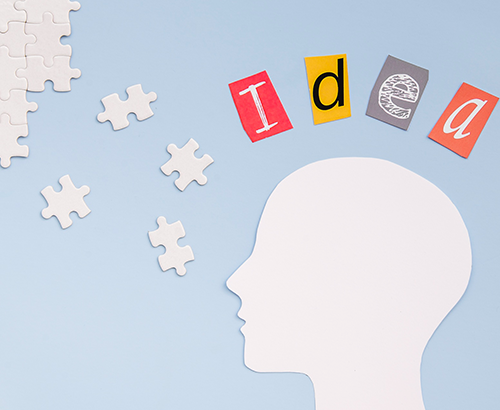
Building Emotional Intelligence: Why Understanding Your Feelings Is Key to Personal Success
Table of Contents
Let me be real with you—there was a time in my life when I thought personal success was all about hustle. The grind. Climbing the ladder. Outworking everyone. And yes, hard work matters. Discipline matters. But what I didn’t understand then was this: if you can’t manage what’s happening inside you, all that hustle means nothing. That’s where emotional intelligence comes in.
What Is Emotional Intelligence?
Emotional intelligence (EQ) is not some fluffy self-help term. It’s about being able to understand and manage your own emotions while also tuning into the feelings of others. It’s the ability to stay calm in the heat of an argument, to handle criticism without getting defensive, and to motivate yourself when nobody else is watching.
EQ is the silent driver behind good decision-making, deep relationships, and personal resilience. Over time, I realize having EQ dealing with people is incredibly important .
The Wake-Up Call
There was a moment—several, actually—when life threw some serious punches at me. I faced career roadblocks, personal conflicts, and emotional breakdowns I didn’t see coming. I used to either explode or shut down. I’d bottle things up, thinking I was “handling” them. Spoiler alert: I wasn’t.
It wasn’t until I started becoming aware of my inner landscape—my triggers, my patterns, my emotional blind spots—that things began to shift. I started seeing emotions not as obstacles but as information.
And that’s when my transformation truly began.
Why EQ Matters More Than You Think
We often praise IQ, talent, or skills, but EQ is what determines how far you go and how well you handle the journey.
Here’s how I see it:
- Self-awareness is your compass. It tells you what you’re feeling and why you’re feeling it. Without it, you’re just reacting, not responding.
- Self-regulation is your anchor. When emotions rise, EQ helps you stay grounded. No lashing out, no self-sabotage. Just steady action.
- Motivation is your fuel. Emotional intelligence helps you stay inspired—even when results are slow, or obstacles stack up.
- Empathy is your bridge. Want to connect deeply with others? You need to feel where they’re coming from, not just hear them out.
- Social skills are your glue. Whether it’s networking, resolving conflicts, or leading a team, EQ makes or breaks how you show up for others.
It’s not about being perfect. It’s about being present, self-aware, and intentional. Those three traits will take you farther than any technical skill ever could.
Developing Emotional Intelligence Isn’t Complicated—But It Takes Work
If you’re anything like me, the idea of “emotional intelligence” might feel vague at first. So, let’s break it down with some real, practical ways you can build it—starting today.
1- Start with Self-Awareness
I began journaling as a way to dump all the noise in my head onto paper. It didn’t take long before patterns started to emerge—what triggered my anger, what fed my insecurity, what made me light up with energy.
Ask yourself:
- What am I feeling right now?
- Why am I feeling this?
- How did I react, and what was the result?
Awareness turns unconscious reactions into conscious choices. That alone is powerful.
2- Learn to Regulate, Not Suppress
Suppressing emotions isn’t strength—it’s emotional constipation. Trust me, I lived like that for years. Emotional regulation is the ability to feel the emotion but not let it drive the car.
Simple things like deep breathing, stepping away from a heated conversation, or even exercising can help you healthily release emotional intensity. The goal isn’t to “control” your emotions; it’s to manage your response.
3- Feed the Right Kind of Motivation
When you’re emotionally intelligent, you don’t rely on outside validation to push you. You create your internal drive. You stay committed, even when things get tough.
For me, this meant revisiting my “why” daily. Why did I want to grow? Why was this goal important? That clarity fueled me.
4- Practice Empathy Like a Muscle
Empathy isn’t about fixing people. It’s about seeing them. It’s the ability to sit with someone in their pain or joy and say, “I get you.”
I used to be quick to jump in with advice or solutions. Actually, I still struggle with it. However, now, I’m much better at just . That shift alone has deepened my relationships more than I ever imagined.
5- Communicate with Intention
Good communication is not just about talking. It’s about connection.
When you’re emotionally intelligent, you’re aware of not just what you say but how you say it. You pick up on body language, tone, and timing. You listen to understand, not just to respond. And when conflict shows up—which it always will—you approach it with curiosity, not defensiveness.
That’s how bridges are built. That’s how relationships are repaired.
EQ = Resilience
One of the most beautiful byproducts of emotional intelligence is resilience.
Life will knock you down. That’s guaranteed. But with EQ, you start to bounce back faster. You don’t get stuck in blame, shame, or bitterness. You own your role, learn the lesson, and move forward.
I’ve failed more times than I can count. I’ve disappointed others. I’ve disappointed myself. But what keeps me growing is my emotional awareness. I can check in, recalibrate, and rise again.
Final Thoughts: Success Starts on the Inside
If you want real success—not just the highlight reel kind, but the kind that feels good when you lay your head down at night—it starts with emotional intelligence.
It starts with knowing yourself.
It starts with showing up for yourself, even when it’s uncomfortable.
It starts with recognizing that your emotions are not weaknesses—they’re signals.
So don’t just chase goals—build the emotional muscle to sustain them.
Because emotional intelligence isn’t just a skill.
It’s your superpower.
